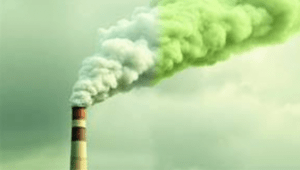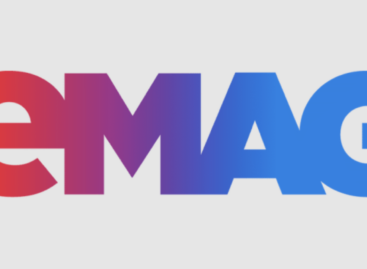Blacklisting for painting green?
Greenwashing (Hungarian: greenwashing) is the practice of presenting a business policy or a specific product as more environmentally friendly than it actually is. According to domestic experts, a change in green communication may soon come: at the EU level, the draft Directive on Green Claims may clarify the situation, and in Hungary, the Hungarian Competition Authority (GVH) is planning a uniform claim and labeling system. The article by Körkörös.hu reveals the results of the GVH’s comprehensive research, as well as what companies can prepare for in the field of greenwashing.
 In 2022, the English competition authority ruled on claims made by three clothing brands: they could have given consumers the impression that their products were made in an environmentally friendly manner, in the Netherlands, it was found that a company also selling clothing products had unfoundedly labeled their products with the words “ecodesign” and “conscious”, in Germany the carbon neutrality label was challenged in several court decisions, and based on French authority decisions, the labels “eco-friendly” and “waste-free” were unfoundedly used in connection with creams and sponges – let’s read the examples from the recent past in the article by Dr. Szabolcs Szendrő and Dr. Aranka Nagy, senior attorney (both of Ormai, Papp, Czike and Partners CMS Cameron McKenna LLP Law Firm), which was published in the study volume entitled “Green Economy” of the Association of Environmental Service Providers and Manufacturers.
In 2022, the English competition authority ruled on claims made by three clothing brands: they could have given consumers the impression that their products were made in an environmentally friendly manner, in the Netherlands, it was found that a company also selling clothing products had unfoundedly labeled their products with the words “ecodesign” and “conscious”, in Germany the carbon neutrality label was challenged in several court decisions, and based on French authority decisions, the labels “eco-friendly” and “waste-free” were unfoundedly used in connection with creams and sponges – let’s read the examples from the recent past in the article by Dr. Szabolcs Szendrő and Dr. Aranka Nagy, senior attorney (both of Ormai, Papp, Czike and Partners CMS Cameron McKenna LLP Law Firm), which was published in the study volume entitled “Green Economy” of the Association of Environmental Service Providers and Manufacturers.
The above European cases have proven the phenomenon of greenwashing, i.e. painting it green. In Hungary, during its comprehensive market analysis conducted by the GVH in November 2022, it reviewed the communication of 60 domestic websites, primarily related to clothing products, cosmetics and cleaning products, as well as the packaging of daily consumer goods. Based on the results of the investigation, businesses communicate about sustainability in a fairly wide range of interpretations and in an irregular manner. Overly general terms without further explanation were common, such as green, environmentally conscious, or explanations related to claims were not available in Hungarian or could not be verified. Many businesses referred to their “green” operations with so-called trust marks and logos, but at the same time, the certification organization or criteria system behind them was not always identifiable (or not available in Hungarian) for consumers.
The phenomenon of “greenwashing” is therefore receiving increasing attention, and it is in the interest of both businesses and law enforcement officials to ensure that expectations regarding green communication are clear and uniform. Steps taken so far have been rather sporadic, with competition authorities in Europe mainly trying to orient market players with informal, non-binding information and guidelines.
Related news
Year-round consumer protection inspections – focus on examining discount prices and detecting customer deception
🎧 Hallgasd a cikket: Lejátszás Szünet Folytatás Leállítás Nyelv: Auto…
Read more >The GVH is investigating the market for over-the-counter medicines.
🎧 Hallgasd a cikket: Lejátszás Szünet Folytatás Leállítás Nyelv: Auto…
Read more >Related news
MOHU: 5,200 return points are in operation, but 47 larger settlements still do not have RE points – public “enema” machines may be introduced
🎧 Hallgasd a cikket: Lejátszás Szünet Folytatás Leállítás Nyelv: Auto…
Read more >GDP growth in OECD member countries slowed to 0.3 percent in the last quarter of last year
🎧 Hallgasd a cikket: Lejátszás Szünet Folytatás Leállítás Nyelv: Auto…
Read more >Change in Rossmann Hungary’s leadership: Kornél Németh decided to move towards new challenges in 2026
🎧 Hallgasd a cikket: Lejátszás Szünet Folytatás Leállítás Nyelv: Auto…
Read more >








